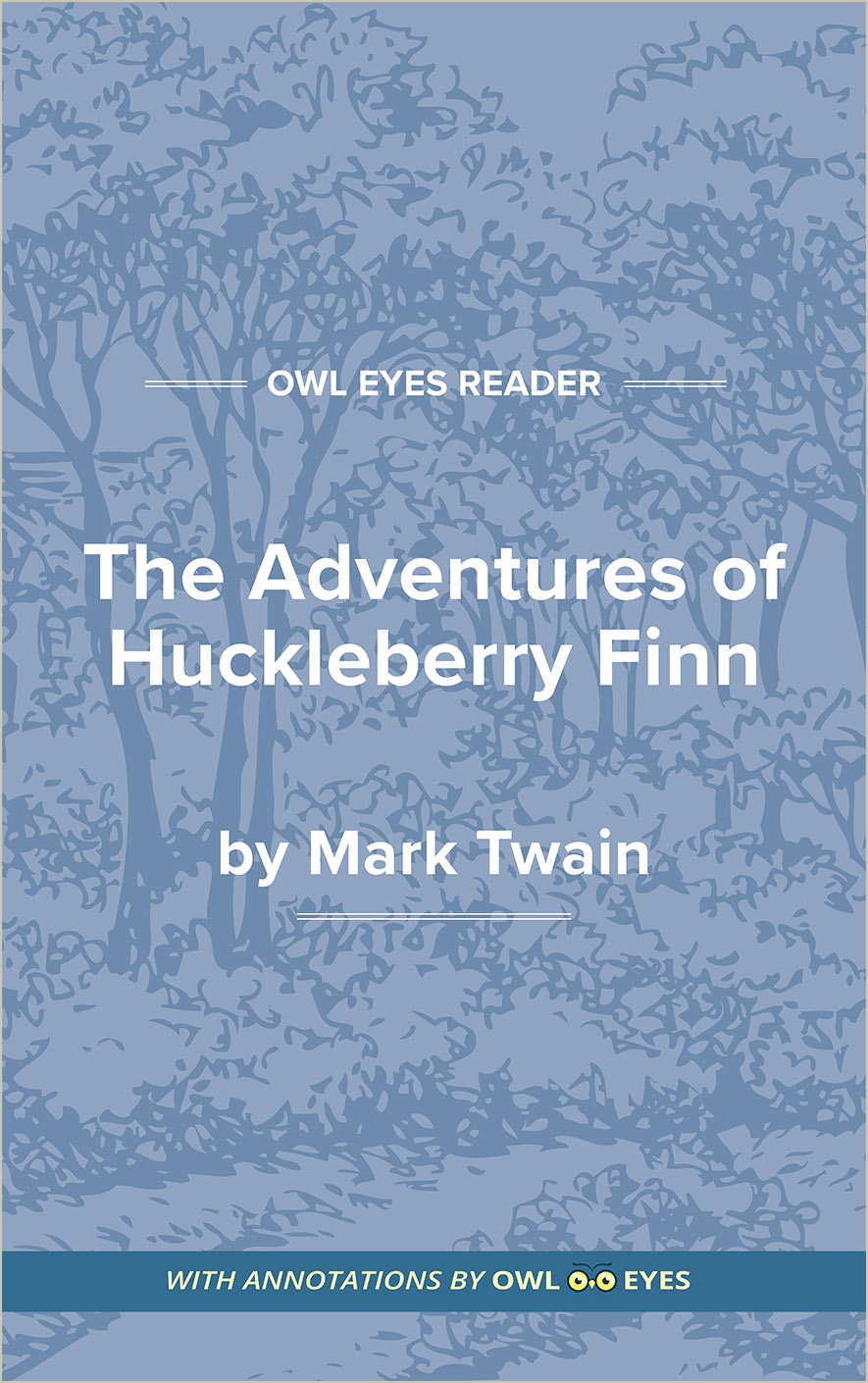Analysis Pages
Themes in The Adventures of Huckleberry Finn
Theme of Freedom as Inherent Motivation: Despite Huck’s and Jim’s differences—age, race, and social position in their racist society—both pursue freedom, spurred by society’s denial of personal freedom. Huck does not want to be “sivilized”—forced to conform to the conventions of society, even those whose use he doesn’t see—while Jim understandably seeks freedom from slavery. Because the Mississippi River allows them to travel, it represents freedom for Huck and Jim and serves as the primary symbol of freedom in the novel.
Theme of Society’s Inevitable Corruption: The towns and settlements along the Mississippi are occupied by those who demonstrate humanity’s worst vices: greed, hypocrisy, arrogance, duplicity, selfishness, stupidity, and violence. Huck confronts violence at the hands of many characters, beginning with his own father. Twain suggests that society’s greatest corruption is slavery, a political and social institution that expresses all the worst traits found in humanity. To escape the creeping influence of societal corruption, Huck and Jim escape to the natural world, which is farther from civilization and its faults.
Theme of the Natural World as Source of Internal Peace: As Huck and Jim travel down the Mississippi, Huck wondrously describes the various natural scenes they encounter. In contrast to civilization, Huck feels at home in nature, able to find peace and the opportunity for introspection. Nature nourishes his spirit while society attempts to change it.
Themes Examples in The Adventures of Huckleberry Finn:
Chapter VIII
🔒"anybody dat put in a dollar would git fo' dollars mo' at de en' er de year..." See in text (Chapter VIII)
"it was death..." See in text (Chapter VIII)
Chapter IX
🔒"We could 'a' had pets enough if we'd wanted them..." See in text (Chapter IX)
Chapter X
🔒"dress up like a girl..." See in text (Chapter X)
Chapter XI
🔒"as awkward as you can..." See in text (Chapter XI)
"two hundred dollars..." See in text (Chapter XI)
"was afeard I had made a mistake coming to her..." See in text (Chapter XI)
Chapter XII
🔒"we must always light the lantern whenever we see a steamboat coming..." See in text (Chapter XII)
Chapter XIV
🔒"why doan' he talk like a man..." See in text (Chapter XIV)
"Well, he was right; he was most always right; he had an uncommon level head for a nigger..." See in text (Chapter XIV)
Chapter XVI
🔒"I felt easy and happy and light as a feather right off. All my troubles was gone..." See in text (Chapter XVI)
Chapter XIX
🔒"song-birds just going it!..." See in text (Chapter XIX)
"Jim he allowed they was made, but I allowed they happened..." See in text (Chapter XIX)
Chapter XX
🔒"runaway niggers on them, all over the walls..." See in text (Chapter XX)
Chapter XXII
🔒"but with courage that's borrowed from their mass..." See in text (Chapter XXII)
"man..." See in text (Chapter XXII)
Chapter XXIII
🔒"as splendid as a rainbow..." See in text (Chapter XXIII)
Chapter XXIV
🔒"swell and starchy..." See in text (Chapter XXIV)
"So they softened down and said it was all right..." See in text (Chapter XXIV)
Chapter XXV
🔒"don't give us no receipt for it.”..." See in text (Chapter XXV)
Chapter XXVII
🔒"that nobody hadn't hired me to take care of..." See in text (Chapter XXVII)
Chapter XXX
🔒"You ought to been ashamed of yourself..." See in text (Chapter XXX)
Chapter XXXI
🔒"So now the frauds reckoned they was out of danger, and they begun to work the villages again..." See in text (Chapter XXXI)
Chapter XXXIII
🔒"best old soul I ever see..." See in text (Chapter XXXIII)
Chapter XLII
🔒"I tell you, gentlemen, a nigger like that is worth a thousand dollars—and kind treatment, too..." See in text (Chapter XLII)
" the very ones that ain't the most anxious to pay for him when they've got their satisfaction out of him..." See in text (Chapter XLII)
Chapter the Last
🔒"light out for the territory..." See in text (Chapter the Last)

